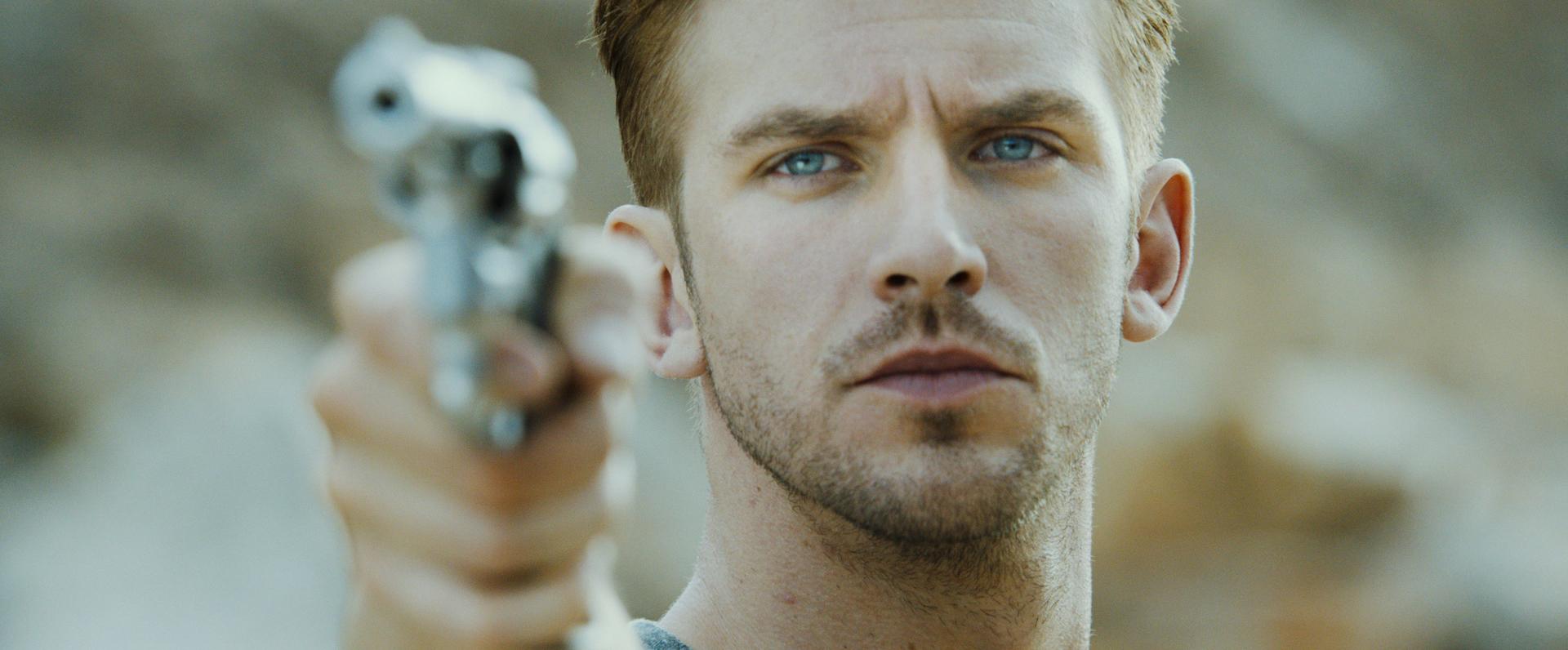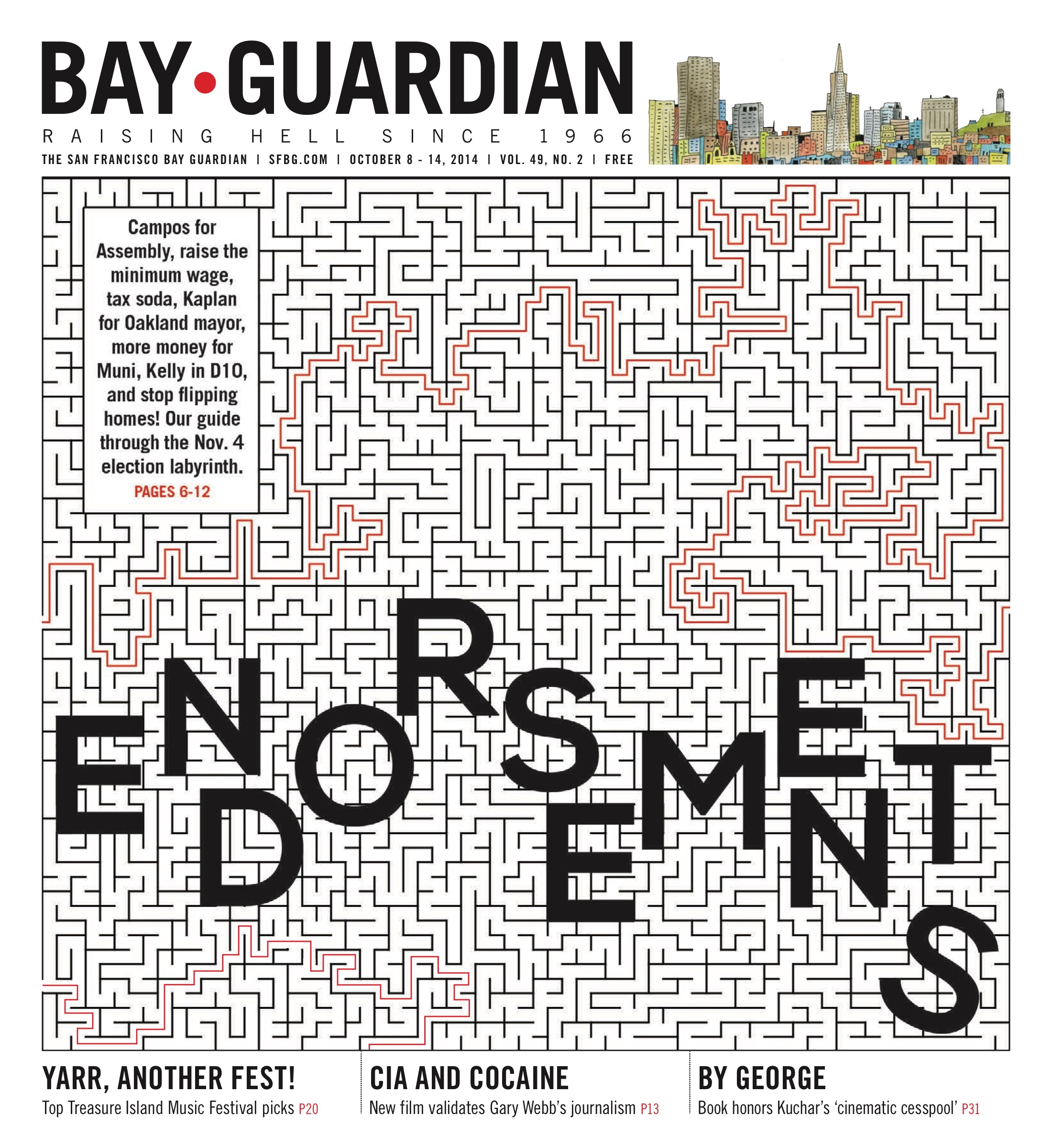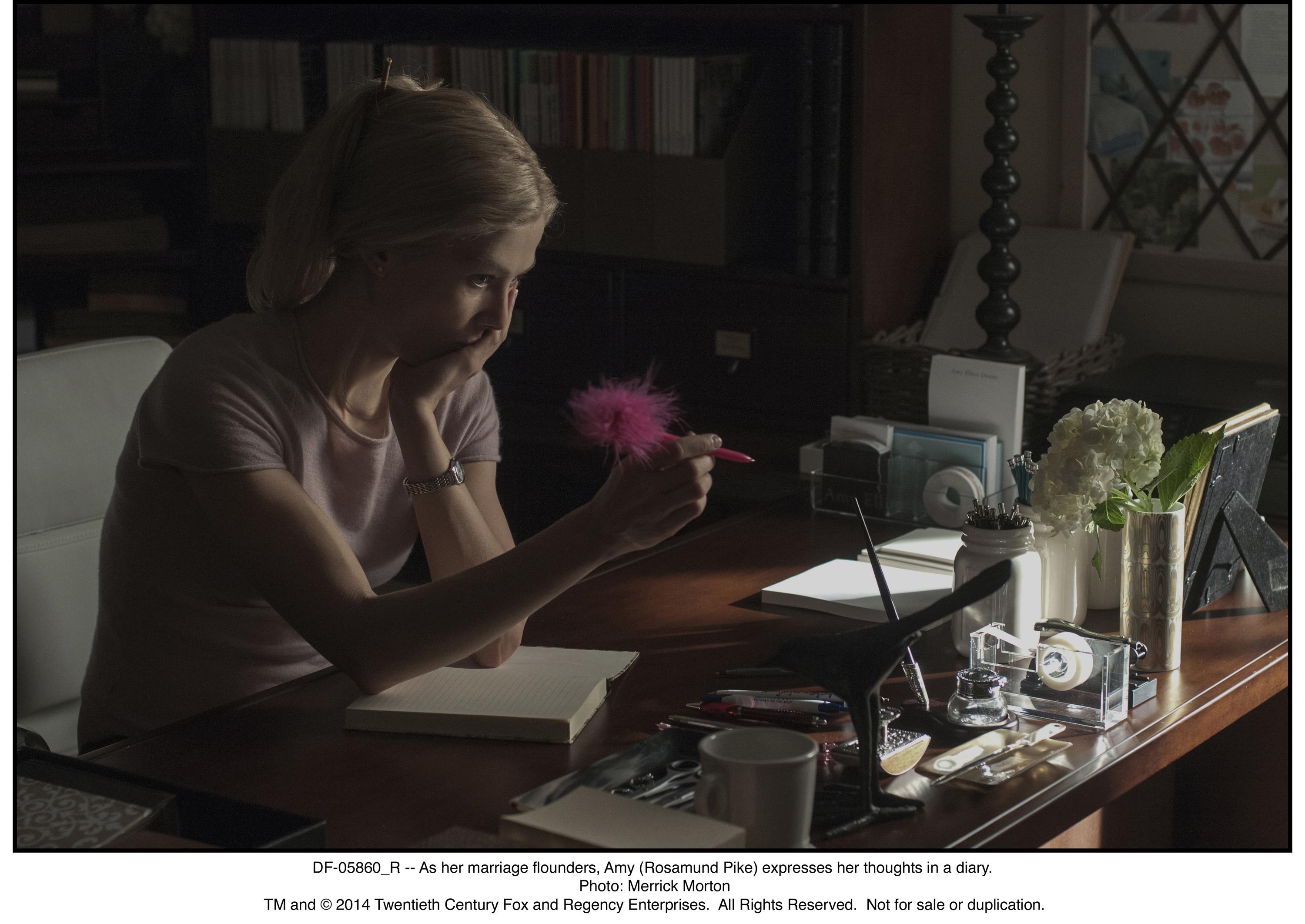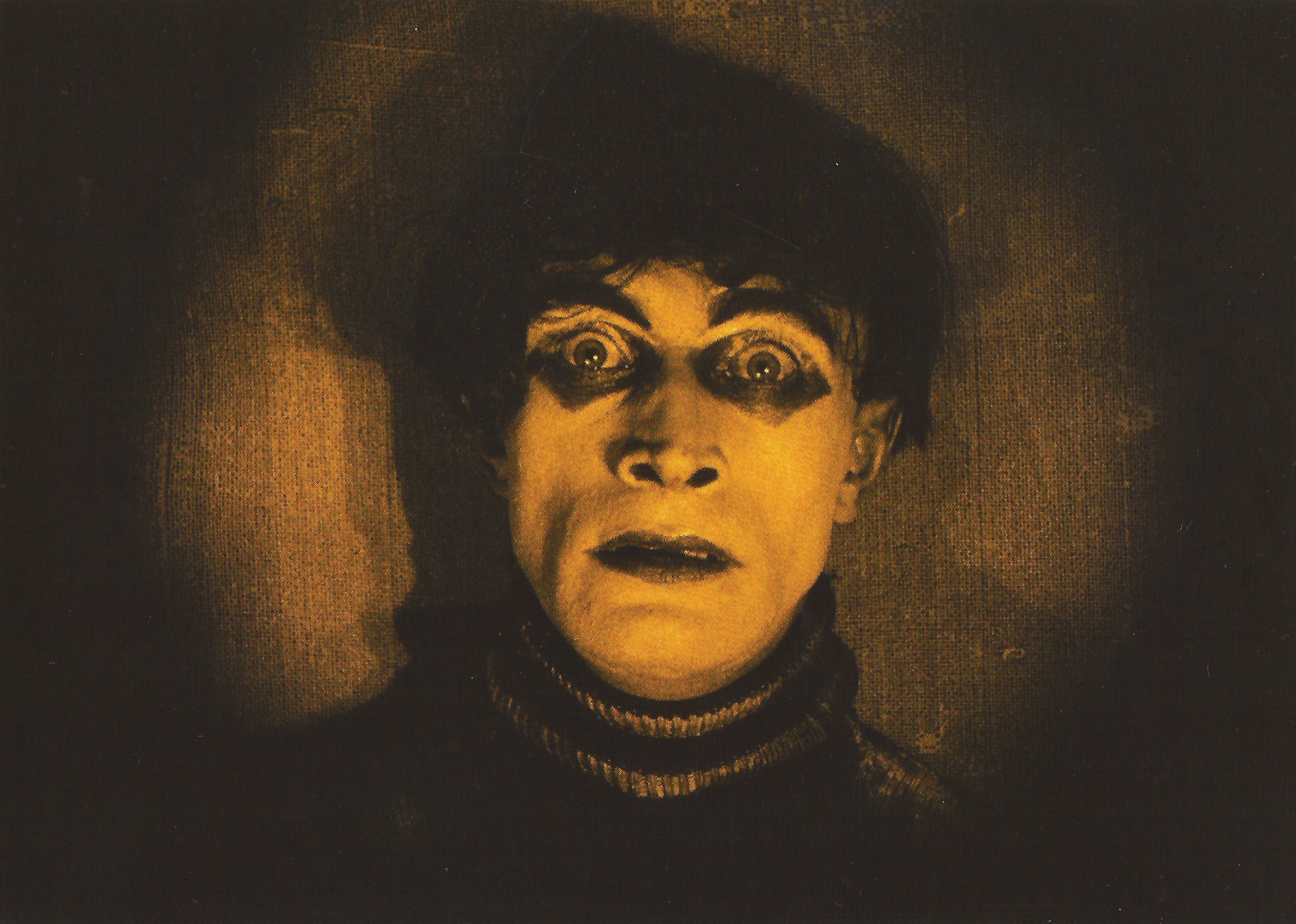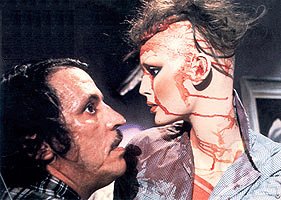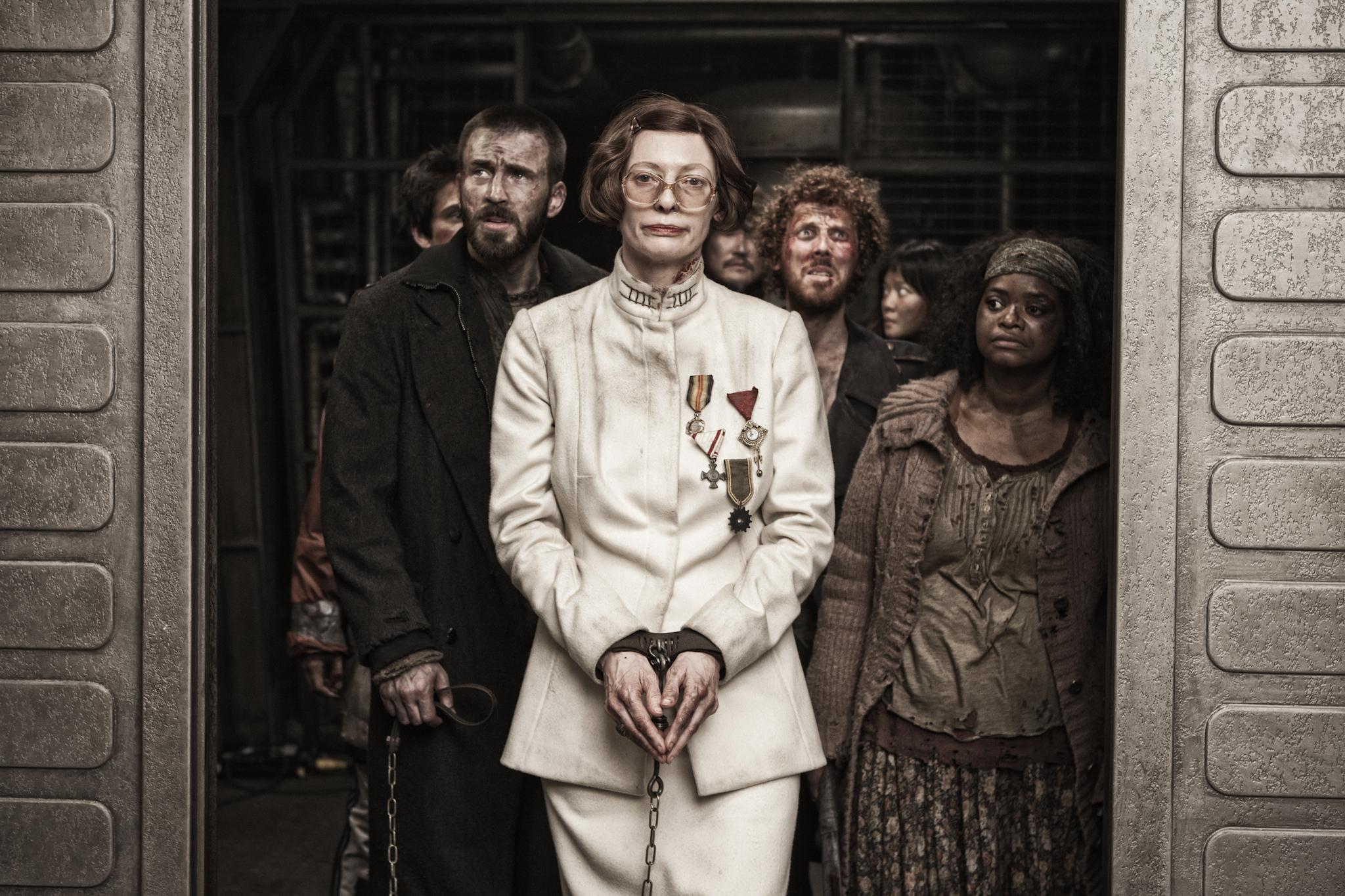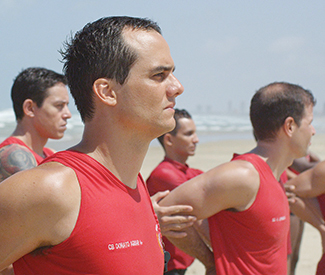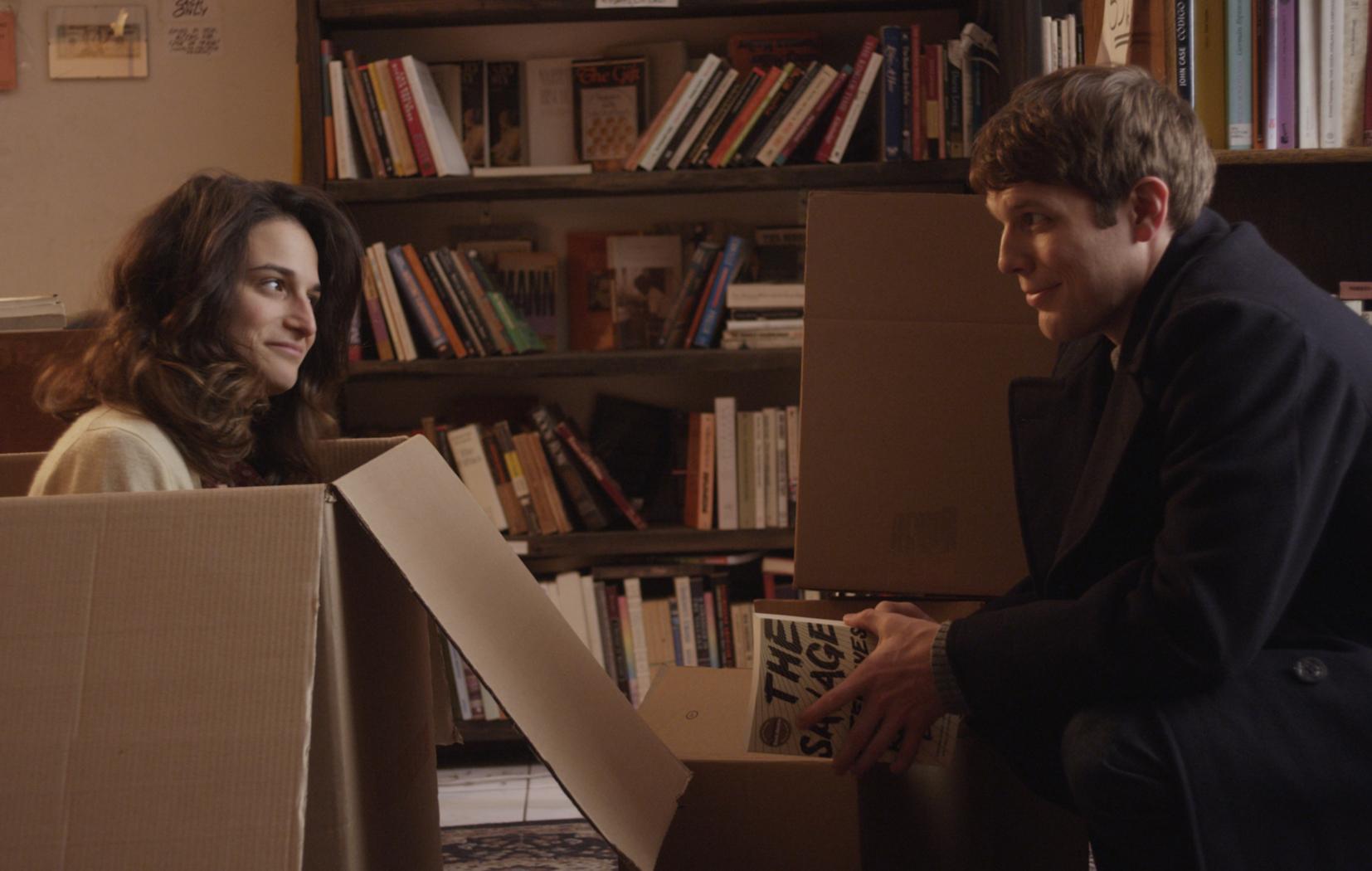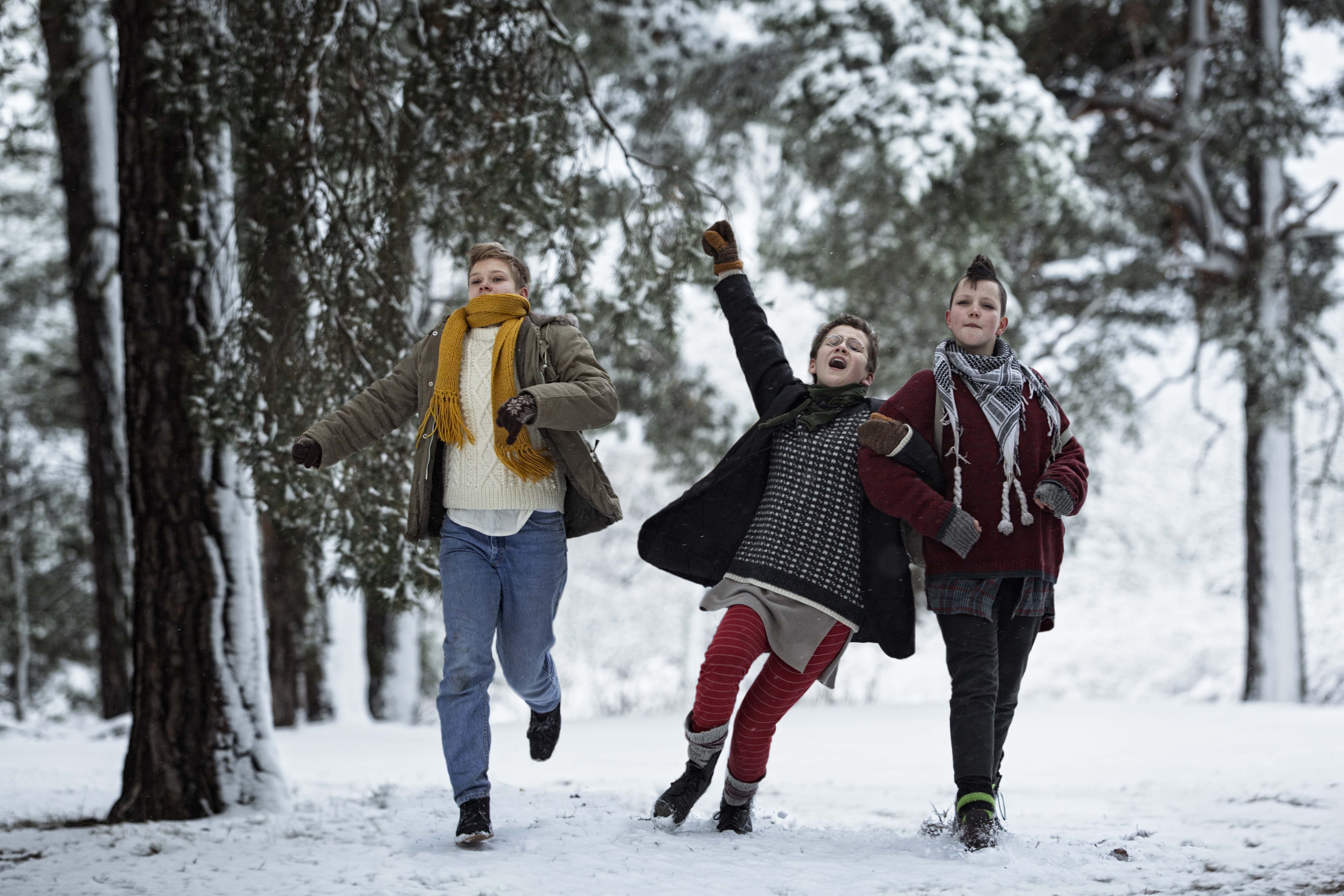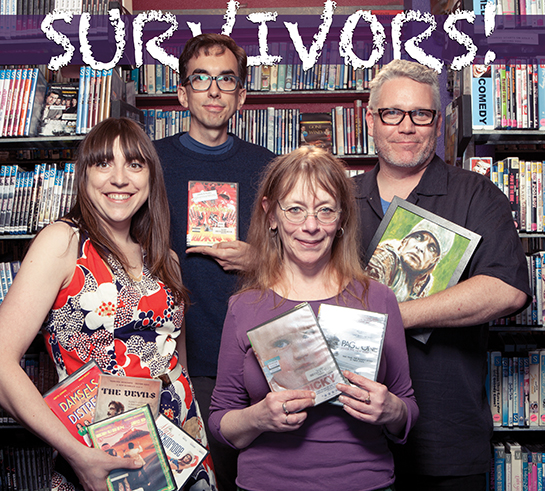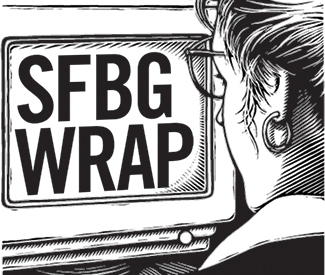FINALLY, clever, retro-styled thriller The Guest is here. Check out our interview with the filmmakers and star here, and then go see The Guest this weekend. You’re welcome.
After you’ve TCB in that regard, you might also want to check out sleek new Patricia Highsmith adaptation The Two Faces of January (review here), family drama The Judge (interview with the director here), or journalism thriller Kill the Messenger. How to decide? Read on for reviews of these and even more films, plus trailers.
https://www.youtube.com/watch?v=ccai-E36BfI
Advanced Style Many successful blogs have been turned into books, but few make the leap to film. Street-style photographer Ari Seth Cohen’s online album of fashionable elders translates well to the big screen, as without exception all of the women featured in Lina Plioplyte’s doc are vivacious, quotable (“I’m an artist, and my art is dressing!” “Good style improves the view for everybody!”), and — obviously — wonderfully, uniquely put together. Although at least one subject, 80-year-old Joyce, is wealthy (witness her to-die-for vintage Chanel purse collection), the rest of the women eschew designer for the most part; one owns a vintage store (“Sometimes I’m building an outfit for seven years!”), one owns a boutique (“You either have it, or you don’t … but you can learn it!”), and others are artists, including a former Apollo theater dancer. All are close with Cohen, an access point that allows Advanced Style to dig beyond fabulous hats and into end-of-life issues, including health concerns among the women and their aging spouses. But mostly, this is an upbeat, inspiring look at women who are embracing their later years — and looking rather fab doing it. (1:12) (Cheryl Eddy)
Alexander and the Terrible, Horrible, No Good, Very Bad Day In this Disney comedy based on the Judith Viorst children’s book, Steve Carell and Jennifer Garner star as parents to an 11-year-old struggling through, well, see title. (1:22)
Björk: Biophilia Live Those who saw one of Björk’s mind-boggling, futuristic spaceshows for her most recent full-length, Biophilia — performed at only a handful of intimate venues around the world — know the specialness of that experience. At the shows, Björk, everyone’s favorite chirping Icelandic wood-fairy, stood on relatively diminutive stages surrounded by a chilling blonde choir while a Tesla coil vibrated electric shocks of purple lightning. Now those who missed out on these very-special-Björk-moments have the luxury of viewing the full show with concert film Bjork: Biophilia Live. The album was heavily based around imaginative musical apps created for it, making the film an interactive experience as well (play along at home!) The film showcases the complete experience of Biophilia, which touches on nature, music, and technology, during Björk’s showing at London’s Alexandra Palace in 2013. While it would have been nice to see a few behind-the-scenes moments, Biophilia Live still brings up close rushes of electrifying sounds, glittering visuals, and a poufy red-orange cotton candy wig floating delicately above Bjork’s cherubic face. (1:37) Roxie. (Emily Savage)
Dead Snow 2: Red vs. Dead Beginning moments after the events of the original 2009 Dead Snow, Tommy Wirkola’s sequel has that film’s sole survivor, Martin (Vegar Hoel), fleeing the resurrected Nazi invaders who laid waste to his seven fellow med school students on their holiday weekend. Crashing his car en route, he wakes up in the hospital, where there’s some good news — he’s alive — but also plenty of bad. For one thing, the infected arm he sawed off to escape zombie-bite infection has been replaced; that would be good, if he weren’t now the bearer of an arm belonging to none other than the nefarious Col. Herzog (Orjan Gamst); naturally, the limb has a malevolent mind of its own. Plus, the authorities laugh off his story of undead Nazi attackers, naturally assuming that he killed his friends himself. Worse still, Martin figures out that Herzog and company won’t stop killing (and “turning”) the living until they’ve conquered a sleepy town some miles away — thus completing their direct orders from Hitler 70 years ago. The first film took its time revealing the outrageous premise, poking along as a conventional slasher until turning into an increasingly berserk, hilarious black comedy midway. This follow-up makes an all-too-predictable mistake: It starts out at “over-the-top,” leaving the movie nowhere to go but further into slapstick gore and bad-taste jokes, all scaled bigger but just half as funny as before. (There’s also the really dismal addition of three zombie-obsessed American nerds, additional “comedy relief” presumably aimed at US audiences — but I’m not sure even a Norwegian could find these asinine cartoons amusing.) Dead Snow 2 has high energy and some laughs, but if you haven’t seen the original, that’s the place to start — and perhaps to end. (1:40) Roxie. (Dennis Harvey)
The Disappearance of Eleanor Rigby: Her/Him The combined version, Them, was released earlier this fall; now, the individual films exploring a marriage in shreds arrive in theaters. Jessica Chastain and James McAvoy star. (3:19)
Dracula Untold Now it can be told: Dracula was super-duper into Game of Thrones! Between the tension-fraught banquet scenes, swordplay, intrigue, ornate costumes and armor, mop-topped children in peril, and dragon references — not to mention the casting of Big Daddy Lannister (Charles Dance) in a key role — the HBO show looms large over this lightweight but enjoyable vampire yarn, which isn’t necessarily a bad thing. Soulfully goth Luke Evans (the Hobbit series) stars as Count Dracula before, during, and after his transformation into the fang-bearer of legend; turns out he was a bloodthirsty dude even in human form (hence the nickname “Vlad the Impaler”), though the film lets him rationalize this battlefield behavior by pointing out it was an intimidation tactic designed to save lives by encouraging armies to surrender. Uh-huh. Some clever effects (bats galore!) and flashes of wry wit add to the fun of this mostly forgettable but seasonally-appropriate exercise. (1:32) (Cheryl Eddy)
The Green Prince Nadav Schirman’s Sundance Film Festival audience award winner (and SF Jewish Film Festival opening night film) should make an impression well beyond the fest circuit; it’s edited and scored like a thriller, surging ahead with constant tension despite the fact that most of the movie consists of the same two talking heads. But what subjects: Palestinian Mosab Hassan Yousef, oldest son of a Hamas leader, and Shin Bet agent Gonen Ben Yitzhak, the man who recruited Mosab to spy on behalf of Israel. How this relationship came to be, the sensitive information it yielded, the incredible risks both men took, and how Mosab eventually ended up living in the United States and sharing his tale — for so long, a life-or-death secret — with the world, is an undeniably gripping tale of loyalty, trust, and a most unlikely friendship. (1:41) (Cheryl Eddy)
The Guest See “Go for Goth.” (1:39)
The Judge Crackling chemistry between Robert Downey, Jr. (as Hank, a hotshot Chicago lawyer who reluctantly returns to his rural hometown after the death of his mother) and Robert Duvall (as the stern title character, Hank’s long-estranged father, Joseph) elevates this otherwise heavy-handed look at a dysfunctional family forced to pull together when Joseph is arrested for murder. The rest of the cast in this more mature departure for director David Dobkin (2005’s The Wedding Crashers) ain’t bad, either; there’s Vincent D’Onofrio as Hank’s seething older brother; Vera Farmiga as Sam, the high school sweetheart Hank left behind; and Billy Bob Thornton as a gimlet-eyed prosecutor with an ax to grind. At two hours and 20 minutes, there’s a lot of opportunity for sentimentality, including a recurring narrative device of using home movies — a treasured hobby of Hank’s younger brother, Dale (Jeremy Strong), unfortunately scripted as a “childlike,” vaguely autistic type — to remind us The Way We Were When Things Were Good. And as if the drama of a murder trial wasn’t enough, there’s also Hank’s tentative reconciliation with Sam, relationship-building efforts with his own wee daughter (Emma Tremblay), a tornado, etc. etc. If The Judge tries to be too many genres at once (see also: Cameron Crowe’s lesser filmography), at least it has those marvelously acted Downey vs. Duvall tête-à-têtes — as well as one memorably hilarious jury-selection scene. For an interview with Dobkin, visit www.sfbg.com/pixel_vision. (2:21) (Cheryl Eddy)
Kill the Messenger Based partly on former San Jose Mercury News investigative reporter Gary Webb’s 1998 book, Dark Alliance, and partly on a posthumous 2004 biography of Webb written by SoCal reporter Nick Schou (from which the film takes its title), Kill the Messenger recounts a grim tale of single-minded muckraking, professional betrayal, and how the federal government’s dubious War on Drugs took an extra-grim turn during the Reagan administration. As the film opens, Webb (Jeremy Renner) is working for the Mercury News, having moved to the Bay Area with his wife (Rosemarie DeWitt) and three kids after some marital trouble back east. In the course of covering a drug dealer’s trial, he gets tipped to a story connecting the CIA, the US funding of the contras in Nicaragua, and the crack cocaine that began pouring into Los Angeles and other American cities in the mid-1980s. Michael Cuesta, who since his directorial debut with L.I.E. in 2001 has been mainly working in television (Homeland, Six Feet Under), attempts to combine an All the President’s Men-style journalistic crime procedural with a portrait of the man who broke the story and was in turn broken by it — or rather, by the CIA and the mainstream press, which turns on him with the vengeance, it’s implied, of a handful of prestigious papers of record that got majorly scooped. The portrait, with Renner giving a nuanced, painfully sympathetic performance, comes out better than the procedural, which feels blurry in places from the speed of the discoveries. (1:52) (Lynn Rapoport)
Kite Based on Yasuomi Umetsu’s cult anime, known for its fetishy sex and violence involving a young girl assassin with a penchant for traditional Japanese school uniforms, South Africa-set sci-fi action indie Kite begins with a bang — and a hail of bone fragments and gray matter splatter when an explosive bullet connects with a baddie’s skull. Set in the dystopic near future, after a global financial meltdown, Kite picks up in the middle of an all-too-familiar seedy scenario: an out-of-it teen hooker in a body-con mini and neon wig is getting dragged into the elevator by a trashy sleazebag. His unnecessary cruelty to an elderly lady sharing their lift forces the damsel to break cover and unleash those exploding bullets. It turn out Sawa (India Eisley) is far from your traditional hapless victim — rather she’s a brutal assassin out to avenge her parents’ murders and jumped up on a military drug designed to dull the pain and memories related to PTSD, administered oh so helpfully by her father’s old law-enforcement partner Aker (Samuel L. Jackson). The catch: a mystery man (Callan McAuliffe) who threatens to disrupt the smooth flow of bloody mayhem with his promise to dredge up Sawa’s past. Kite‘s acting talent — in particular Eisley and Jackson — and cinematographer Lance Gewer do what they can, painting the screen with lurid hues and just as over-the-top emotive moments, with pulpy material that’s high on the ultra violence (and salacious kicks for those into little girls with guns) but low on originality. (1:30) (Kimberly Chun)
One Chance Dramedy about the unlikely rise of Britain’s Got Talent breakout Paul Potts (played by James Corden, who just replaced Craig Ferguson as host of The Late Late Show). (1:43)
The Two Faces of January See “Con and On.” (1:38)

